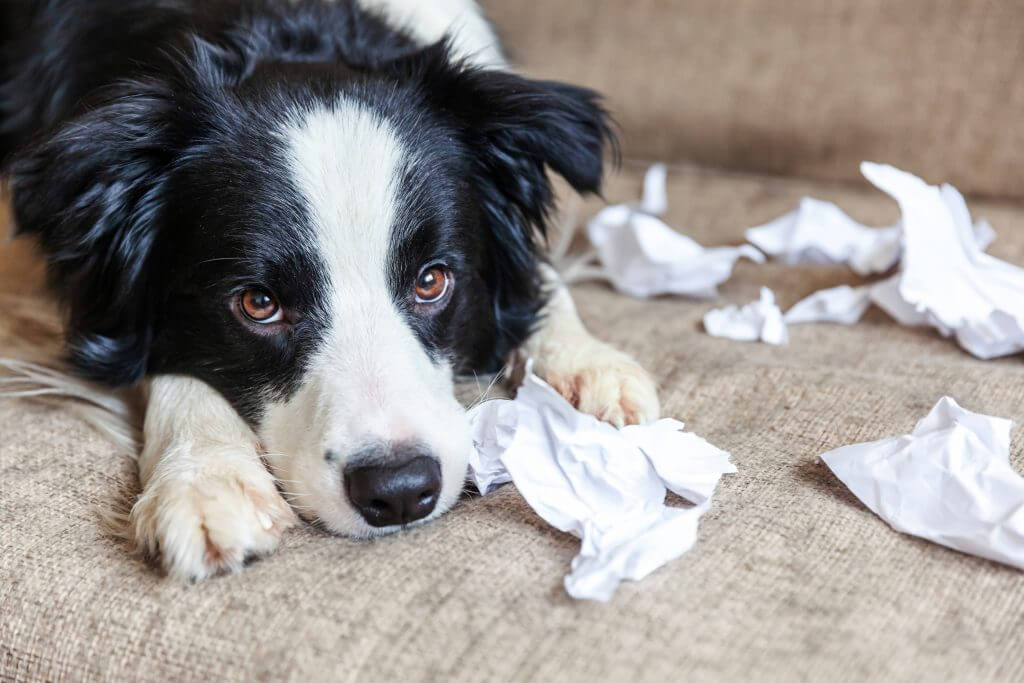Separation anxiety is a natural condition that dogs can have. If you have been working remotely and now have to go back into the office or if your dog doesn’t like being alone all day when you are working, the stress and anxiety can give them separation anxiety. It’s prevalent, and for most dogs, it’s treatable. At Leader of the Pack, we believe in using a positive and realistic approach to helping your dog through separation anxiety. Continue reading to learn more!
Can Dogs Have Separation Anxiety?
Dogs can have separation anxiety. Millions of dogs develop separation anxiety when they become very attached to their human, and when that human isn’t around all day because they are at work it becomes a stressor to their system. Cases of separation anxiety in pets are skyrocketing now that many people are returning to work in offices after working at home for the last couple of years. Separation anxiety can be severe, but Leader of the Pack can help you identify and solve your dog’s new condition!
Dogs can have anxiety over lots of issues. But separation anxiety typically occurs when:
- Dogs are left alone for an extended period after they are used to being with people.
- Dogs that are adopted by a new family
- Moving from one home to a new home
- Change in the family routine
- Loss of another pet or a family member
If you know a potentially stressful life change is coming up, you should prepare your pet for the big event early and in a healthy way.
Signs of Separation Anxiety
Each dog will manifest different symptoms of anxiety, but the common ones are:
- Howl, bark, or whine to excess
- Have indoor “accidents” even though they are housebroken
- Chew things up, dig holes, scratch at windows and doors
- Drool, pant, or salivate way more than usual
- Pace, often in an obsessive pattern
- Try to escape
How to Treat Separation Anxiety in Dogs
It’s always possible that your dog is trying to tell you something is wrong or that they don’t feel well. So the first thing you should do is have your dog examined by a vet. Then you can talk to the vet about the symptoms of separation anxiety your dog is displaying to get their recommendation for treatment. If the vet believes there is a behavioral problem, such as the destruction of items within your home, Leader of the Pack can help!
Treatment For Dog Separation Anxiety
Sometimes your dog needs some additional treatment to deal with its anxiety. A puzzle toy stuffed with peanut butter will keep your dog’s mind busy and provide a delicious treat. Give your dog the puzzle toy stuffed with peanut butter when you leave the house. Take it away when you get home. The dog will learn to associate your leaving with getting a delicious treat.
Start by giving the dog this treat, then leave for five minutes. When you get back, take the treat and praise the dog. Start increasing the length of time you are gone, and soon you should be able to leave for a workday without the dog getting anxious. You can also try the following:
- Ignore the dog for a few minutes after you get home.
- Put out clothes that smell like you in the dog’s bed so it has your scent.
- Crate train your dog and make the crate a comfortable place for the dog. The dog may feel more secure and less anxious in the crate all day.
- Hire a dog walker to come take the dog out during the day.
- Get interactive toys and puzzle toys.
- Leave the TV or radio on.
- Get an interactive pet camera to see what’s happening and interact with your pet throughout the day.
Get Professional Help with Leader of the Pack
If your dog’s anxiety is worrying you and causing problems with your neighbors or landlords, Leader of the Pack dog training can help. We are conveniently located in Quincy, MA, and offer on-site group training and in-person private training at your home! Check out the areas we serve today to see if we travel to your town. Please call us at (617)296-1711 to learn more about custom solutions for dog separation anxiety.
